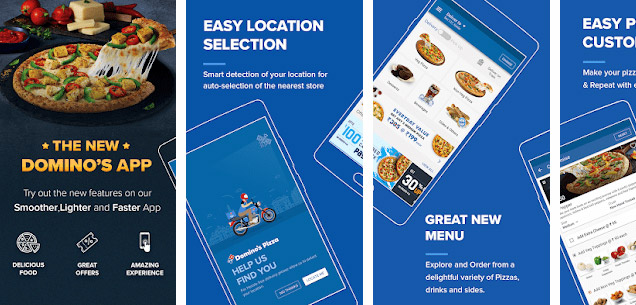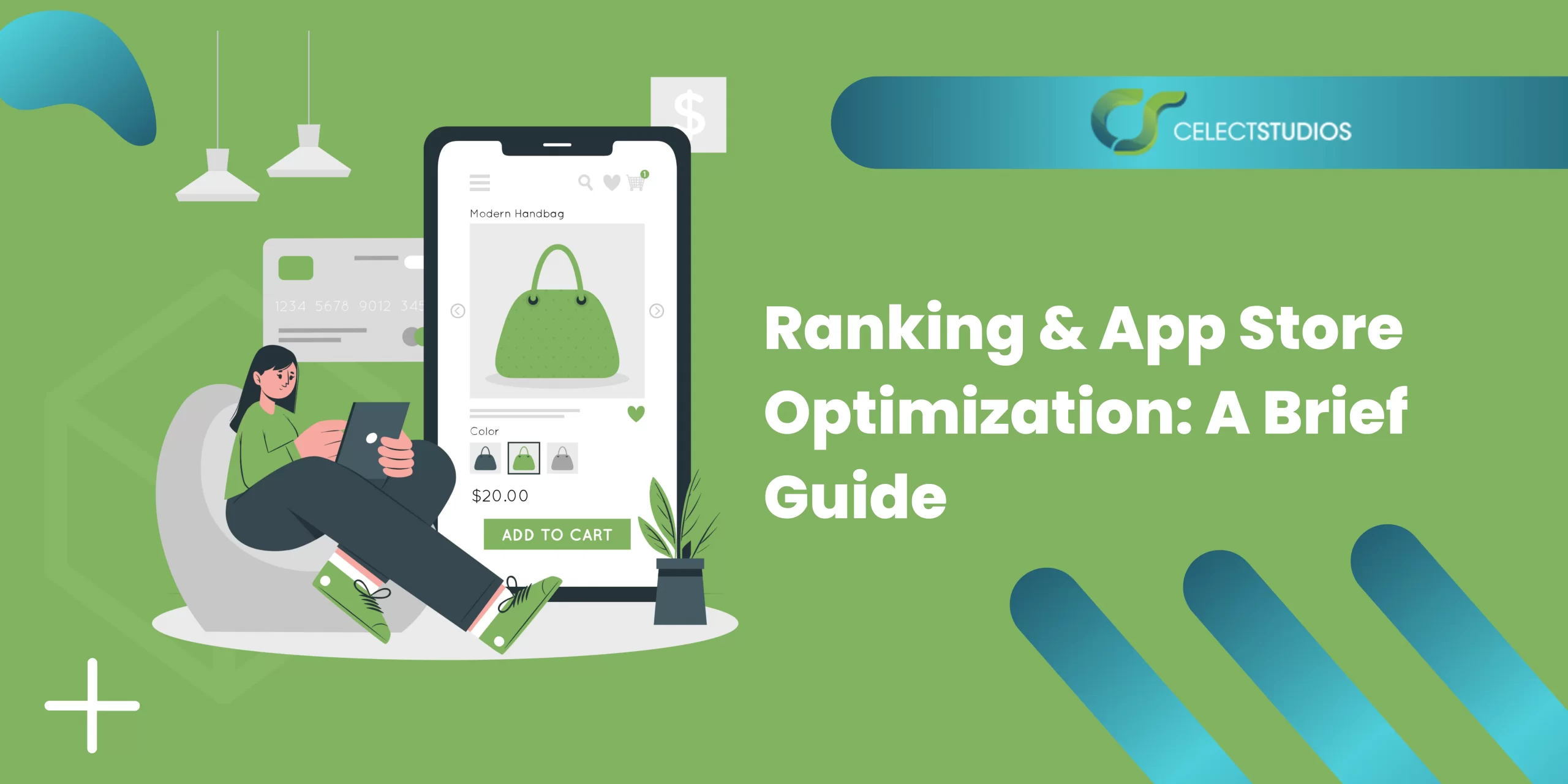Mobile app developers and publishers must make their apps stand out in App Store and Google Play. When their App Store ranking is high, it can help them increase their mobile app’s visibility, leading to higher app store traffic and significant downloads. Following this guide, you can get your mobile app to the top of the Apple App Store and enhance its discoverability and conversion rates by better understanding App Store Optimization (ASO).
What is App Store Optimization?
App Store optimization means augmenting your mobile app to get it to rank higher and boost its discoverability in the App Store. It is basically a counterpart of SEO, which assists you in increasing the visibility of your website in Google search results.
The competition for grabbing the audience’s attention is fierce. Only through an effective ASO strategy can you have the edge over others. ASO can help you with the following:
- Boost your App Store ranking
- Refine app reviews and ratings
- Increase brand exposure through new app discoveries
- Invite more app downloads, updates, and in-app purchases
- Boost user engagement and conversions
- Generate more revenue streams
Nevertheless, many App Store ranking factors determine whether your app is worthy of being on the top of the App Store list. It would be wise to make the most of these App Store ranking factors in order to convince users to download and engage with your mobile app in the app store.
Optimizing your iOS app for different App Store ranking factors
There are many things that your App Store ranking relies upon. Let’s shed light on five crucial ranking factors that can significantly impact your app’s position in search results.
- Ranking Factor # 1: Name, Title, and URL
The name of your application plays a very significant part in your app store rankings. The name or title you choose for your app must have the most potent keywords intertwined with your brand name. Also, having a concise name can be beneficial for your iOS app. Keywords you integrate into your app’s name highlight the primary purpose of your app and the value it offers. For instance, the app “GetFit” has a nice ring to it. It is concise and describes the core purpose of the business.
On the contrary, keyword stuffing and putting irrelevant keywords in your app name can prove to be disastrous. Although this strategy can get more impressions, your conversion rates can take a serious hit. Keeping that in mind, always keep a balance between your brand name and relevant keywords when coming up with your app name, title, and URL.
- Ranking Factor# 2: Target Keywords
The App Store allows you to mention your target keywords in the keyword field. Therefore, it would be wise to choose keywords after conducting rigorous keyword research. The keywords you decide on must showcase your mobile app’s core features and advantages. Remember not to repeat any keywords you have previously used in the app name or title.
Avoid using spaces and use commas to separate words instead. This will help you to rank on App Store for the single keywords and their combinations. For example, if you mention “photo editing,” it can help you index your app for “photo,” “editing,” “photo editing,” and “editing photo.”
- Ranking Factor# 3: User Reviews and Ratings
One of the most crucial App Store ranking factors is user feedback. It can either make or break the future of your iOS mobile application. User ratings and reviews not only affect iOS App Store rankings but also influence your app’s conversion rate. Therefore, building a solid reputation might help in gathering a positive approval rate from the users.
59% of users check reviews before downloading an app. This makes app optimization all the more necessary. Thoroughly run tests on your app so that there are no post-launch bugs experienced by your users after they download it from the App Store. This will ensure your users have a positive user experience and earn you 5-star ratings.
Another way to encourage users to leave positive reviews is by occasionally asking for feedback. You may drop a pop-up for a review whenever they complete a certain level or make an in-app purchase. Always remember to respond to their feedback, especially if it’s not good. When you respond to a negative review, the user will feel acknowledged. You will then be able to salvage the situation effectively and turn a negative into a positive.
Bad reviews can also allow you to identify and overcome your app’s shortcomings to improve the overall user experience. This will help you to put a stop to negative reviews in the future. Positive reviews are proof of your app’s credibility and add value to the purpose it is created for. Adhering to this app store ranking factor will help widen your app’s reach and increase its downloads, thereby improving its ranking in the App Store.
- Ranking Factor# 4: Visual Assets

There is more to your mobile app than the textual aspects. Therefore, always put some effort into the optimization of the visual assets to improve conversions. Aspects like the app’s icon, its screenshots, and the feature graphics are crucial App Store ranking factors that must not be disregarded. Although a visually appealing app icon can attract more users to your iOS app, do not put unnecessary details and colors into it. Always keep it unique and simple.
The App Store lets you display screenshots of your app’s interface on various devices. You should make the most of those screenshots to showcase the best features of your application. This will help you to improve the download rate. The first three screenshots are of utmost importance. Use those slots wisely by implementing engaging text and CTAs. Besides the screenshots, you can also integrate a feature graphic into your app page in the App Store. It could be in the form of an image or a video. It will help if you harness this element as a powerful tool to convince users to download your app. Remember, during the process of creating such visual elements, pay close attention to your app’s size. Most users will always prefer an application that consumes less data and memory.
- Ranking Factor# 5: Number of App Downloads

One crucial factor that determines your app ranking is its number of downloads. More downloads automatically raise the value of your app; therefore, its popularity shoots up. It’s indeed outside your control to increase the number of downloads for your iOS app. However, marketing strategies are always helpful in creating buzz about the app to attract Apple users. This includes acquiring app optimization services. You have to monitor activity on the App Store to learn about people’s responses to your app. This can enable you to make adjustments accordingly and improve the user experience. It is also recommended to run a competitor analysis to determine which keywords work well for apps that are similar to yours.
Ready to take your iOS mobile app to the top?
Optimizing your app for App Store ranking factors discussed above can significantly impact your app’s rankings in the App Store. It can assist in enhancing your app’s visibility, drive more traffic, and boost conversion rates. However, these variables are constantly evolving, similar to the trends in mobile app development. It’s your job to frequently monitor and optimize your app to improve your app rankings. Not doing so could run the risk of your app getting booted out of the App Store.
All things considered, you might want to get in touch with a reliable iOS mobile app development company that can help you with a robust mobile app that ticks all the boxes. At Celect Studios, we create state-of-the-art iOS mobile apps that constantly rank higher in the App Store and are loved by Apple users worldwide. If you want to experience success the way it is meant to be experienced, then we are always here for you.



